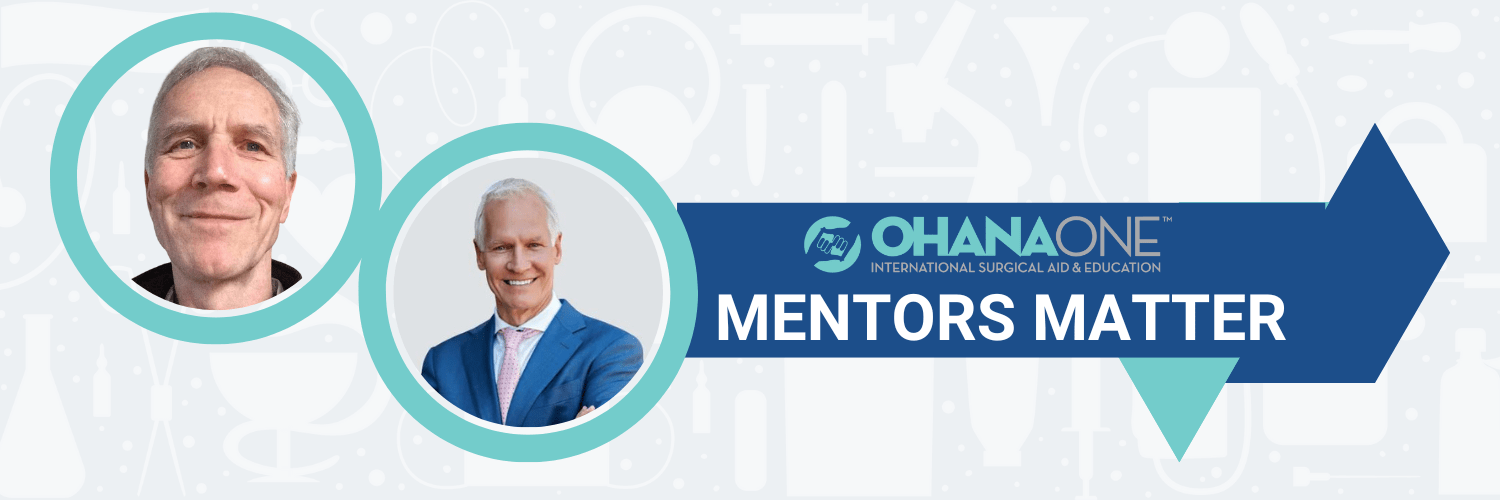
Ohana One’s Surgical Sight Smart Glass program is comprised of volunteer surgical mentors and mentees from all around the world. These passionate professionals donate their free time to share knowledge and collaborate with their colleagues using smart glass and immersive technology. They each have their own reasons for furthering their careers in this way, but they all share the same drive to elevate surgical care.
We asked a couple of the mentors in our Ohana (family) to share their reasons for mentoring through our program, and we are excited to share their insights with you.
As a plastic surgeon, I commenced my career-long interest in international surgical mentorship the year I finished training, 1991. My first trip was to Shanghai to teach Microsurgery. I’m sure I learned more than I taught!
Since then, I have had the opportunity through various groups, including ReSurge and Healing The Children, to take care of children and to teach surgeons in South America, Africa, and Asia. My most recent in-country trip was to Dehradun, India, in January 2020. My surgical host, Dr. Kush Aeron, is a remarkable surgeon and compassionate person. I returned home to Washington state just before the Covid lockdowns.
Regardless of long-term travel restrictions, I have been able to keep up our trusted mentor/mentee relationship with Dr. Aeron, thanks to Ohana One. Marchelle and her wonderful team have supplied me with the necessary tools to continue our hands-on healing experience with Dr. Aeron and to assist him with surgeries on our virtual platform.
Feeling the appreciation and impact of my role as a surgical mentor continues to be one of the most fulfilling aspects of my medical career. I am honored to have been given the opportunity by Ohana One and ReSurge to be an early adopter of the Ohana One virtual technology. I truly believe that the ever-enlarging circle of Ohana One adopters is revolutionizing the mentor/mentee surgical experience around the world.
I mentor because…. Well, first of all, it is really important. We know there is a higher death rate in low-income countries because of the lack of surgery, and anything we can do to promote surgery and to help with equipment can really make a difference. Then there are the benefits to the mentor: the sense of contributing – the deep friendships that result from the efforts made – and perhaps most surprisingly, the leaps that you, the mentor, will make as a result of the interactions and challenges. In my case, I started out mentoring in stone surgery in Sri Lanka in 2008. The interaction was a dramatic success in that Sri Lanka went from performing open surgery in 99% of cases to almost exclusively performing minimally invasive surgery for all stones within just two years. But the surprising benefit for me was that my techniques evolved and developed as a result of this international work. I became a better surgeon. When I listen to other mentors, I hear a parallel story time after time.
Mentoring has changed my life. I take more time out of my work schedule in order to travel to low-income countries – but the sense of fulfillment has resulted in me delaying my retirement. I get to see more of the world, improve my language skills and immerse myself in different cultures. My one hope is that I can stay fit and surgically competent enough to continue as a mentor for a few more years.
I mentor because I find it so gratifying to know that I can help patients I will never meet through the eyes and hands of the surgeons I train
For more insights into the people who make up the Ohana One Surgical Sight Smart Glass program, we encourage you to visit our social media pages, where you can find stories, photos, videos, and more from our special Ohana!

Recent Comments